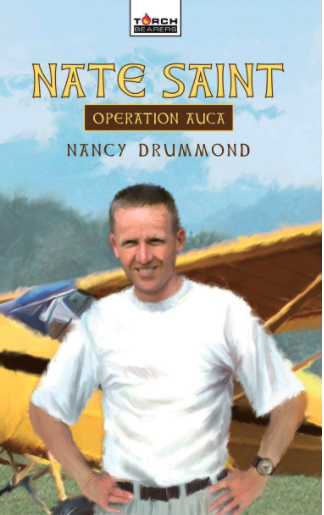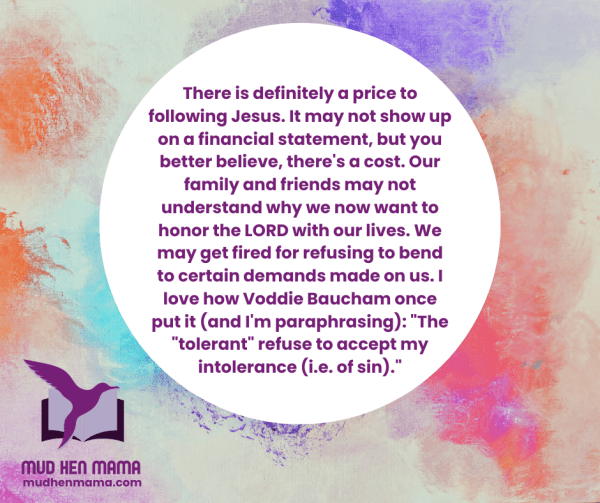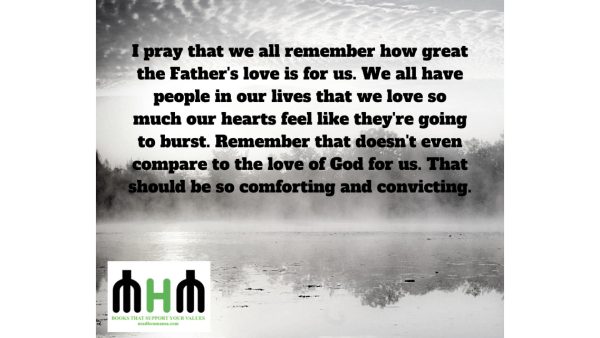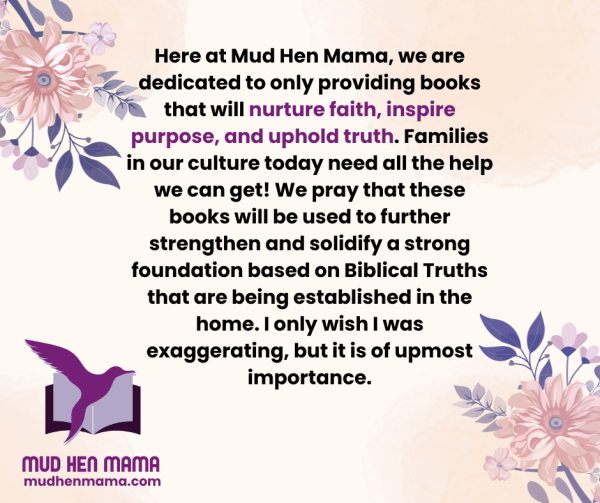
Don’t read this book if you enjoy being comfortable. Don’t read this book if you don’t want to feel convicted. Don’t read this book if you don’t want to get a very gracious and swift kick in the rear. So there’s your warning.
It sounds simple – radical ordinary hospitality. And it is. Sort of. It’s simple to say and understand but it’s not so simple to do, because we get in the way. At least I personally know, I get in the way. Ugh.
When I first started reading this book, I started to really feel uneasy. I thought to myself: “I mean, really? I’m pretty busy. And we actually host (dinner and/or coffee) often. Obviously, not right now (LORD have mercy), but we definitely host many people. But neighbors and acquaintances? I don’t know them well! Sounds awkward and over the top, and did I mention I’m tired?”
Towards the beginning of the book, Rosaria talks about how many Christians are: “…sidelined by fears. We fear that people will hurt us. We fear that people will negatively influence our children. We fear that we do not even understand the language of this new world order, least of all its people (page 35).” Is it only me, or does anyone else resonate with this? I hate to admit that any of it could be even remotely true.
What Rosaria is calling us all to do is step into the messiness of the lives around us. That just doesn’t sound pleasant. I was honestly scouring the internet looking for criticisms of the book initially. There had to be, right? Ahem. Well, yeah.. nope. So I gritted my teeth, and read on. I’m so glad I did. I love how Rosaria ends Chapter 2 (page 46): Faith in Jesus foregrounds the trust that says, “I love my neighbor because she is mine, and not because she loves me back.” Wow.
Later in the book, she emphasizes the fact that acceptance is NOT the same thing as approval. Our neighbors need to know that they are genuinely accepted by us first and foremost. But of course, that doesn’t mean that we approve of ungodly choices they may make (footnote – none of us are perfect and we ALL sin, but choosing sin and struggling with sin are two different things). I love how she puts it: “And one important way that we can be good neighbors is to help people carry the crosses they bear…The job of an ally makes the cross lighter, not by erecting or supporting laws that oppose God’s law, but by being good company in the bearing of its weight… When we try to be more merciful than God, we put a millstone around the neck of the person we wish to help (page 58).” How beautiful, and true, is that?
One of the most convicting parts of the book was when Rosaria described how she and her family have these huge get-togethers with neighbors and other church members WEEKLY (on the Sabbath, i.e. Sunday) so that they can help others not to stumble in their faith. How exactly does that make sense? Because “Sin demands isolation. While community does not inoculate us against sin, godly community is a sweet balm of safety. It gives us a place and a season where we are safe with ourselves and safe with others (page 111).” Sundays for our family usually are very low key, but I couldn’t help but think how hard would it be to throw some soup into my InstaPot and invite people over for lunch? Or on second thought, maybe dinner. Usually, the twins are toast after church and are slightly insane. But the point? It doesn’t have to look exactly like how Rosaria does it or how I would do it, but we need to move towards biblical hospitality in whatever way works best in our lives. Just moving forward in the direction of obedience in this area is key. How else will we build relationships with those who don’t know Christ and/or enjoy fellowship with other Believers?
There are examples strewn throughout the book of incredible examples of hospitality. And it’s not that she’s being prideful about it, but oh so real. Whether it was difficult and unbelieving family members or a drug-addicted neighbor or life after a robbery in their home, she is transparent and honest. And why I find her and her writing so fascinating is that she does not have a squeaky clean past. She did not grow up in the church. Far from it. But that’s what makes her testimony all the more amazing. Christ’s fingerprints are all over it. There’s just truly no other explanation. To go from an outspoken Lesbian English professor at Syracuse University to a homeschooling mother and wife of a pastor? How else could you explain that? She’s incredible.
I wish I lived on her street. But alas, I don’t. I live in a completely different part of the country. This is where the LORD has me and my family. So now what? We can walk away from this just like the rich young man did to Christ after he was told he needed to leave everything to follow Him. Or we can listen and find ways to step into the lives around us. But we can’t un-know this. We can’t un-read it (dang it). She’s right. As Believers, even if it makes us uncomfortable, even if we have difficult people around us, we need to reach out and be Christ’s hands and feet. Like I’ve mentioned, I’m tired, anyone else? But I don’t want to have any regrets, do you? As Brother Yun (he wrote The Heavenly Man and I need to do a book review for that too!! So, so good) amazingly said (and I’m paraphrasing), I don’t want to pray for God to remove me from difficult situations, but I pray for a stronger back to handle what He gives me.
Instead of praying away difficult people and situations, LORD help us all to want to pray for stronger backs. Who else is in? And if you haven’t already guessed, I highly recommend this book!











